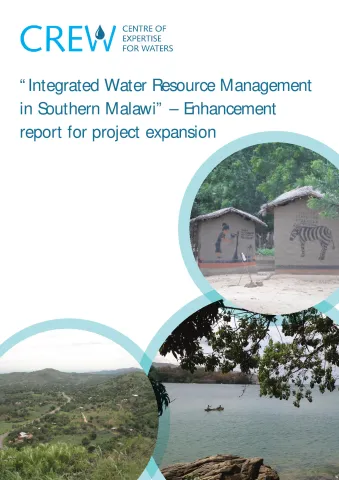Abertay University was commissioned by the Scottish Government through Hydro Nation International to explore ways to enhance the impact of Scottish Government support to the Government
of Malawi in the achievement of Sustainable Development Goal 6 (SDG6). The project involved:
- A review of the changing demand on water supplies, the impact of abstraction and the resilience and sustainability of ground water in Malawi
- Engagement with key stakeholders in water development in Malawi to map and understand the complex interaction of key water stakeholders
- The development a roadmap for scaling up Scottish Government support to meet the SDG6
- The establishment of enhancement indicators to support planning and monitoring of a future roll-out of Scottish Government SDG activities across Malawi.
The review of knowledge of sustainable water resources in Malawi showed that there is a general reduction in available water resources resulting in significant lowering of surface and groundwater levels. Large-scale deforestation alongside reduced frequency of precipitation and higher ambient temperatures, and increased water demand associated with high population growth rate are believed to be some of the factors affecting the water levels. Hence, a holistic assessment of water supply and demand, i.e., integrated water resources management implementation, is needed to address medium to long-term water availability challenges.
The Stakeholder Map provides a representation of the water sector in Malawi showing stakeholders in relation to their contribution to key areas of governance and policy development, regulation, policy implementation and service provision. The representation shows the diverse range of actors resulting in a complex interaction amongst stakeholders. It highlights the complexity of the planning and co-ordination processes and a need for enhanced coordination of activities in the sector. It was found that the nature of these processes limits the effectiveness of the planning process, which in turn restricts the effective operation of the water sector and the implementation of water development projects.
The Critical Path will assist Scottish Government to identify and develop suitable interventions actions to support the water sector in Malawi. It identifies 5 key challenges for Malawi, namely; coordination and governance, water resource management, infrastructure, capacity building and monitoring and surveillance. The following key interventions have identified from the Critical Path to help address these challenges.
- Scottish Government (Role as a donor) - Support coordination efforts at Donor and NGO groups (Donor Group/Sector Working Group/WESNET).
- Scottish Government – Raising the profile of water and improving the governance and regulatory framework (Government – Government interaction).
- Scottish Government - Support local training provision and capacity building
- Scottish Water International - Support asset assessment and management plans
- Scottish Environment Protection Agency (SEPA) - Catchment management and water resources management support.
Enhancement Indicators have been established to aid planning and monitoring of future Scottish Government support activities in Malawi. Planned support activities can be designed using a delivery framework, the identified deliverables mapped to relevant indicators and a qualitative assessment made of the extent of their contributions of the activities to the indicators. An appropriate sub-set of indicators can then be developed into metrics for ongoing monitoring.
Overall, this study provides tools and templates for assessing and developing effective interventions to address SDG6 needs in sub-Saharan African countries.
| Attachment | Size |
|---|---|
| Main report: Integrated Water Resource Management in Southern Malawi | 4.33 MB |
